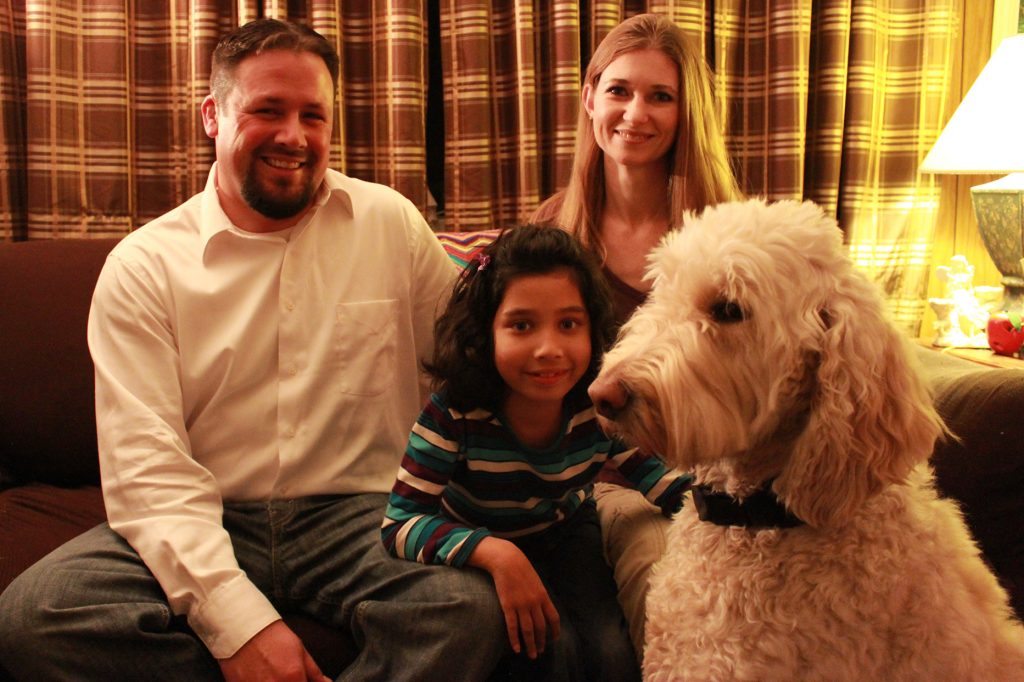
Photo Credit: ACLU
On February 22, 2017, The U.S. Supreme Court issued a unanimous decision in favor of 13-year-old Ehlena Fry and her service, Wonder. While it comes far too late to give Ehlena the elementary school experience she should have had, the decision will help other children facing disability discrimination in school pursue their rights under the Americans with Disabilities Act (ADA) without having to jump through administrative hoops first.
Ehlena’s Story
Ehlena has cerebral palsy which caused her to suffer from severe mobility problems when she was starting school. Enter Wonder the service dog. Wonder is trained to pick up items, open and close doors, turn off lights, help Ehlena take her coat off and help her with her balance. He helped her in settings that should be private, such as transferring from her walker to the toilet.
Wonder gave Ehlena the confidence, independence, and dignity that relying on other human beings simply cannot replace.
But that is exactly what the school demanded. It refused to allow her to bring Wonder to school because, as part of her individualized special education program she was assigned a human aide who could perform those tasks. When the American Civil Liberties Union (ACLU) got involved, the school backed down a bit, but Wonder was still not allowed to be with Ehlena for most of the school day. Then the school changed its mind and said that Wonder could not come back the next year.
Her parents chose to homeschool her rather than have her separated from Wonder. They eventually found a school for her that welcomed Wonder with open arms.
The Supreme Court Decision
The Supreme Court was not asked to decide if Wonder should have been allowed in school, but whether families with claims like the Fry’s can go directly an ADA lawsuit, without having to go through lengthy Individuals with Disabilities Education Act (IDEA) administrative proceedings first. IDEA guarantees “free appropriate public education” (FAPE) for children with disabilities.
The Supreme Court ruled in favor of the Fry family. It said that a family does not need to go through IDEA proceedings first, if they are not claiming that the child is being denied a FAPE.
When determining if denial of FAPE is the main issue, courts are instructed to look at two questions, “First, could the plaintiff have brought essentially the same claim if the alleged conduct had occurred at a public facility that was not a school—say, a public theater or library? And second, could an adult at the school—say, an employee or visitor—have pressed essentially the same grievance?” If the answer to both questions if “yes” then denial of FAPE is most likely not the main issue.
Why it Matters
Legal battles are painfully slow, and time does not stop marching on while we fight them. This is especially true for children, who go through critical stages of development in very short periods of time. Clearing the way for families with ADA claims to skip the unnecessary and lengthy IDEA administrative process, means that children have the chance to get relief faster. And, it makes it harder for schools to get away with violating students’ rights under the ADA by hiding behind IDEA compliance.
The ADA protects children as well as adults, and public schools are not exempt from compliance. If your child is suffering from disability discrimination at school, please get help for you child now.















